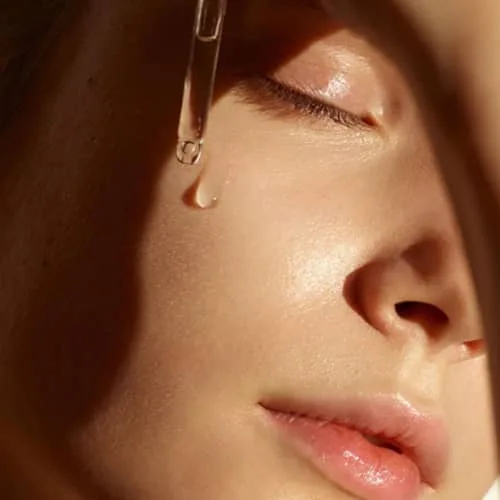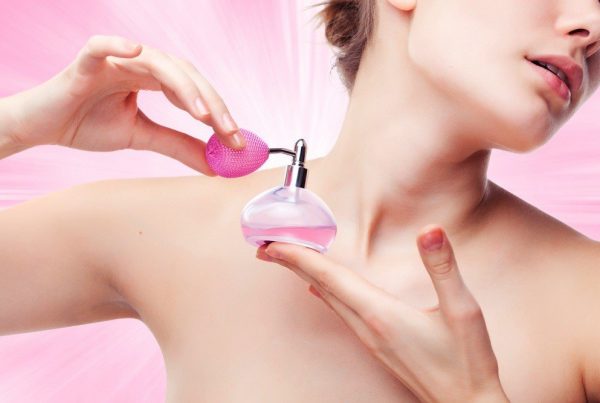On June 5 and 8, we celebrate World Environmental Day and Ocean Day. Both will have a strong focus on plastic pollution – a silent killer of our Earth. The plastics crisis is a disaster for both environmental justice and climate change. I believe every individual can make a difference. By reconsidering your beauty brand purchases, you have the power to help reduce plastic pollution. An OpEd by Dr Stephen Helary, founder of luxury beauty brand Terres d’Afrique,
Every year, the globe generates 400 million tons of plastic waste—nearly the weight of the entire human population—with disastrous consequences for human and climate health. The beauty industry, with its well-known poor practice of greenwashing consumers, is responsible for 120 billion units of plastic garbage each year. This makes it the leading offender in terms of plastic pollution.
How to buy more consciously and reduce plastic waste
As a person who cares about the environment, it is always reassuring to see individuals mobilizing in other parts of the world to raise awareness about critical environmental issues.
I believe these awareness days provide an excellent opportunity to educate and share experiences. The key to success in the fight against climate change and plastic waste is education.
Is recycling really a long-term sustainable option?
Social injustice is also a component of the story: the individuals and communities most affected by plastic manufacturing and pollution are disproportionately the most vulnerable and least culpable.
Consumers have been sold the notion that recycling is the solution. In reality, a garbage truck’s worth of single-use plastic clogs pollutes the ocean every minute. Nonetheless, less than 10% of all plastics manufactured are recycled. Without intervention, more plastic may be in the sea than fish by 2050.
Plastic micro-particles end up in food and the air
The human effects are just as bad. Plastic manufacturing and pollution produce a wide range of hazardous compounds, raising the risk of cancer and other catastrophic health consequences.
Microparticles end up in the food and air we consume. A recent study discovered that we ingest up to five grams of plastic per week—the equivalent of a full credit card—and that microplastic particles are identified in human tissues. Plastic is manufactured from oil, and several of these compounds are proven carcinogens, which could explain the surge in cancer over the last 50 years.
Profit over ethics?
Whatever cosmetic companies tell their customers to explain their use of single-use plastic packaging, the only genuine explanation is cost. Plastic bottles and tubes are far less expensive than glass or aluminum and do not break.
Profits take precedence over ethics and respect for people and the environment, which is why many beauty brands continue to utilize single-use plastic.
Profit over respect for human beings and the natural environment isn’t worth it because our health is directly linked to the health of the Earth. Beauty companies must cease their greenwashing marketing and take responsibility.
Stop purchasing single-use plastic packaging!
Regardless of whether consumers separate their waste, plastic is not recycled. There is just one thing customers can do to help fix the problem: stop purchasing products in single-use plastic packaging.
I know it’s nearly impossible these days because everything seems to be wrapped in plastic. Therefore, it is vital that consumers support brands that go above and beyond to provide a real solution to the problem by adopting alternative packaging that may be slightly more expensive but is safe for you and the environment.
Request that the government prohibit the use of single-use plastic. Many European countries, as well as many states in the United States, have implemented these new policies.
Plastic has many wonderful applications, and we should not mistake single-use plastic for other applications such as furniture. The main issue is single-use plastic packaging (shopping bags, food packaging, plastic bottles, jars, and tubes). Without single-use plastic packaging, the world would be healthier and cleaner.
Biodegradability remains a huge challenge
The packaging industry is hard at work developing biodegradable and ecological alternatives, such as corn starch materials. Although these novel materials are intriguing, they are not a solution.
This is due to the fact that their biodegradability depends on very particular conditions that can only be provided in a few spots worldwide. Most of our basic composting facilities will not allow the material to biodegrade during this time; therefore, they also represent a threat.
What consumers can do to support World Environmental and Ocean Day now and in the future:
- Demand more from brands.
- Then, support brands that are doing their best, even at a higher cost.
- Be mindful of your own consumption, not only with regard to beauty products but in all aspects of your life.
- Educate yourself, identify greenwashing, and READ THOSE LABELS!
Main photo credit: Coutesy of Terres d’Afriques
About the author

Dr Stephen Helary
Dr. Stephan Helary is the founder and CEO of Terres d’Afriques. Born and raised in Madagascar, Dr. Helary has deep experience across agricultural science, botany, conservation, and ecology. He has also devoted much of his time to economic development projects across Africa. Dr. Helary holds a Master’s degree in Environmental and Wildlife Management and a Ph.D. in Nutritional Ecology, with a particular focus on Black Rhinoceros. His current focus encompasses ethnobotany and the biochemistry of indigenous botanicals, as well as their uses in local communities.



![women [longevity live]](https://longevitylive.com/wp-content/uploads/2020/01/photo-of-women-walking-down-the-street-1116984-100x100.jpg)










